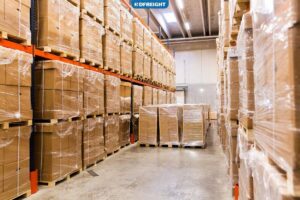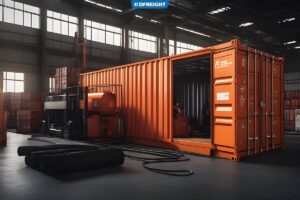When it comes to finding the difference between customs duties and taxes, we must admit that they are frequently confused. Importers must comprehend the difference between customs duties and taxes, their meaning, and their significant differences.
Tariffs and duties are two different types of tax that are usually imposed on imported products. The government usually forces the taxpayer to pay taxes. Tariffs are direct taxes levied on products coming from another country. On the other hand, duties are indirect taxes consumers of imported products have to pay. Tariffs and duties defend domestic industries by raising the cost of imports. Taxes, duties, and tariffs add to the product’s overall import and export expenses.
The government applies taxes, duties, and tariffs to raise tax revenue. Duties and taxes provide the cash to fund social and developmental projects like education, health, and security. Let us go through each to examine the difference between customs duties and taxes in more detail.
Table of Contents
What Exactly Are Taxes?
To understand the difference between customs duties and taxes, let’s learn more about taxes first. Taxes are government revenues imposed on almost all purchases, directly or indirectly. Taxes are levied primarily on goods and people. Because paying taxes is mandatory rather than optional, an individual is obligated to pay them, and failure to do so is penalized.
Import taxes are fees levied by the government on items brought into the country. As a result, both duties and tariffs are forms of import taxes. The importer normally pays import taxes. When commodities are purchased outside of the country, a consumption tax is imposed, which is collected by Customs when the goods enter the country.
What Exactly Are Duties?
Duties are government-imposed indirect taxes on customers. Financial transactions and commodities both have duties imposed on them. Due to their resemblance to a consumer tax, duties are considered an indirect tax. Imported and domestically manufactured goods both have duties imposed on them.
Customs duties are government-imposed indirect taxes on customers who import products. The government collects customs duties to preserve local industry by increasing state revenue to compensate for lower-cost manufacturing. The amount of customs duties to be paid will be determined by the value, weight, size, and other characteristics of the imported goods; this is a difference between customs duties and taxes.
How to Calculate Duties to Comply with Customs
Customs compliance involves paying the necessary duties based on the 10-digit HTS code of each product. A unique HTS code is assigned to each type of product. Your freight forwarder or customs broker can find your product’s HTS code and use that information to determine your duty rates.
Companies are strongly advised not to intentionally undervalue products or misdeclare one type of item as another to avoid paying a higher duty rate. For example, if you sell a leather handbag and declare it as such, it will be issued a special HTS code. However, if your handbag is genuinely 60% leather and 40% cotton, you must ensure that your HTS code accurately reflects all aspects of your product. This is when an expert can be of the most assistance in figuring things out. If you misdeclare your products, there’s a good likelihood that customs will discover them sooner or later, and you’ll face severe penalties and fines.
Your Duty Rates May Be Affected by a Certificate of Origin
Imported goods must be labeled as originating from a particular country. A certificate of origin is an essential customs document, and the country mentioned on it can affect how much a seller pays for customs duties.
A certificate of origin that says your products are from a specific country might affect your overall duty rates depending on the trade climate and how widespread your production network is. You may pay greater or lesser charges if you claim a different certificate of origin.
What Are Tariffs and How Do They Work?
Tariffs are normally confused with duties, so knowing the difference between customs duties and taxes is essential to prevent misunderstandings. A tariff is a government-imposed direct tax on a specific class of imports or exports. The harmonized tariff system codes (HTS) under which imported items are classified are referred to as tariffs. HTS codes determine the tariff rate that should be imposed on certain products. HTS codes are mostly used for imports.
Tariffs can potentially raise the cost of products imported into a country. Imported items will be more expensive in the domestic market if the government adds taxes. Hence, you need a customs clearance agent or freight broker’s counsel to fully understand the difference between customs duties and taxes and calculate your additional expenses. As a result of the increase in the price of imported products, the quantity of the imported goods will decrease, while the supply of that product in the domestic market will grow.
Imposing tariffs can make the job harder for international exporters, benefit domestic producers, and allow the government to receive tariff revenue.
The Final Word
We hope this article has shed light on the difference between customs duties and taxes.
DFreight is a digital freight forwarder with a worldwide logistics platform that connects diverse global logistics partners. DFreight’s services aren’t simply restricted to shipping and freight. Instead, DFreight offers complete supply chain solutions that include all means of transportation. Contact us for further help. We are available 24/7 to answer your call and solve a problem.
What is a customs duty?
Customs duty is a tax that is levied on goods that are imported into a country.
What is a customs tax?
A customs tax is a tax that is levied on the import or export of goods.
What are the benefits of paying customs duties, taxes, and tariffs?
The benefits of paying customs duties, taxes, and tariffs include protecting local industries, generating revenue for the government, and ensuring compliance with international trade agreements.
What are the consequences of not paying customs duties, taxes, and tariffs?
The consequences of not paying customs duties, taxes, and tariffs can include seizing goods, fines, and imprisonment.














